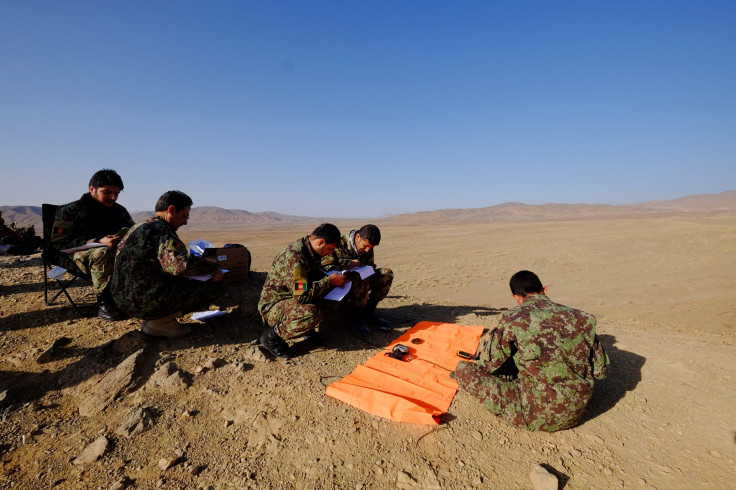ISIS In Afghanistan: Islamic State Seeks To Expand Caliphate With Former Taliban Fighters

The Islamic State group wants to expand its so-called caliphate inside Afghanistan as the militants fend off military attacks in its strongholds in Iraq and Syria, the country's top U.S. commander said. Recruits from Uzbekistan and Pakistan are reportedly helping to fuel the effort.
"Right now we see them very focused on trying to establish their caliphate, the Khorasan caliphate, inside Afghanistan," General John Nicholson said in an exclusive interview with NBC News from Kabul. The push is "principally a non-Afghan movement," he added.
He said many Afghans oppose the militant group also known as ISIS that took signficant swaths of territory in Syra and Iraq in 2014 as part of its goal of establishing a global Islamic state. Roughly 1,000 ISIS fighters have gathered in Afghanistan's Nangarhar province in part because the nearby border with Pakistan remains "very porous," he said.
"With our Afghan partners, we've been able to reduce that territory significantly and inflict heavy casualties on them to include killing their leaders," Nicholson said.
He added: "The number of border posts probably needs to increase."
Many of the militants in Afghanistan were previously associated with the Taliban, but were at one point forced out of Pakistan. Taliban and Al Qaeda leaders oppose ISIS' claim to a nascent global caliphate.
"Groups around the world want to jump on that bandwagon and cash in on their popularity and the fear they command," a Pakistani police official based in Islamabad told Reuters in August.
For the past two weeks, a U.S.-led coalition has moved to take down ISIS' stronghold of Mosul, Iraq's second largest city. At least 78 towns and villages have been liberated and roughly 772 ISIS fighters have been killed, according to the Iraqi Joint Operations command center.
ISIS' caliphate seeks to govern under Sharia law, under which strict punishments such as amputations and beheadings are not uncommon. Drugs, alcohol and cigarettes are banned, and women have limited rights.
© Copyright IBTimes 2024. All rights reserved.






















